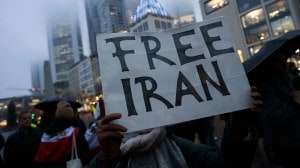Autonomy option doubtful, says Blair
BELGRADE, APRIL 9: NATO warplanes hit targets in eastern Belgrade early today as the western alliance sought for a third week to force Yu...

BELGRADE, APRIL 9: NATO warplanes hit targets in eastern Belgrade early today as the western alliance sought for a third week to force Yugoslavia into an autonomy and peacekeeping deal over Kosovo.
In London, British Prime Minister Tony Blair raised the stakes in the Kosovo crisis when he appeared to warn Belgrade that independence for the southern Serbian province could be an option.
8220;In relation to Kosovo8230; I think it8217;s more and more difficult to foresee autonomy within the federal republic of Yugoslavia,8221; Blair said last night in a British Broadcasting Corporation BBC television interview.
Belgrade8217;s Studio B television station quoted the city8217;s civil defence crisis centre as saying NATO aircraft 8220;hit the wider area of eastern Belgrade8221;.
A resident said she had seen a huge mushroom-shaped fire lighting the sky above the suburbs of Lestane and Bubanj Potok 8220;it might have been a fuel depot8230; I also heard many aircraft flying above Belgrade,8221; she said.
The official Tanjug news agencysaid nato missiles hit a fuel depot in the southern town of Smederevo shortly after midnight. 8220;The depot is in flames,8221; it said.
Tanjug also said a residential area of the central town of Kragujevac, site of the country8217;s sole car-maker Zastava, was hit by at least seven missiles.
The humanitarian crisis involving hundreds of thousands of Kosovo refugees meanwhile remained a top priority, with the fate of several thousand displaced people still hanging in the air.
Yugoslavia has slammed the door shut on the refugee exodus and forced back into Kosovo thousands of frantic people seeking to flee to neighbouring countries. No one outside the province knows what has become of them.
Chartered jets were loaded in New York with about 150 tonnes of food for Kosovo refugees in Macedonia and Albania.
Brazil said it was ready to take a 8220;limited8221; number of refugees.
The United Nations says around 430,000 refugees have fled or been displaced from Kosovo since the NATO air strikes started on March24.
United Nations High Commission for Refugees UNHCR said on Tuesday only about 500,000 to 600,000 ethnic Albanians might be left in Kosovo out of an original 1.7 million 8212; 90 per cent of the previous population of the province.
- 01
- 02
- 03
- 04
- 05































